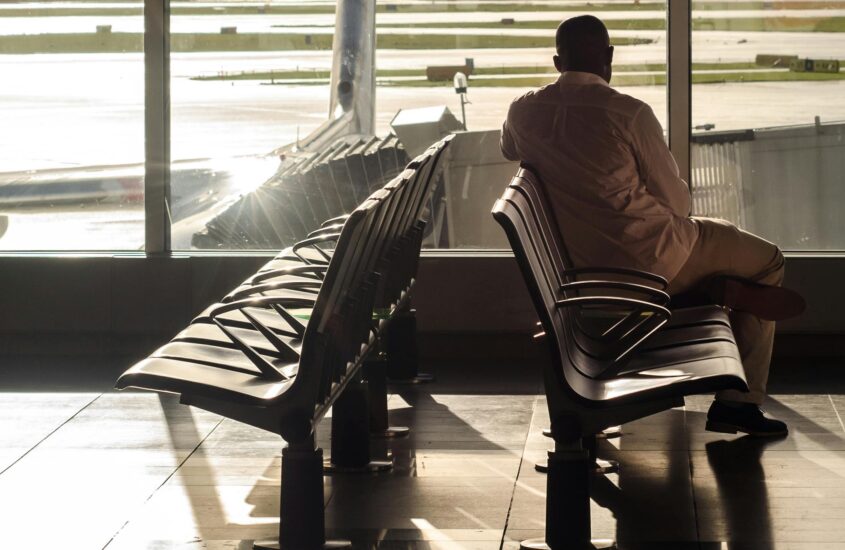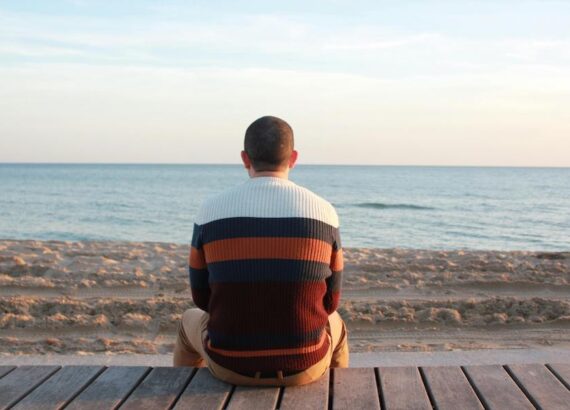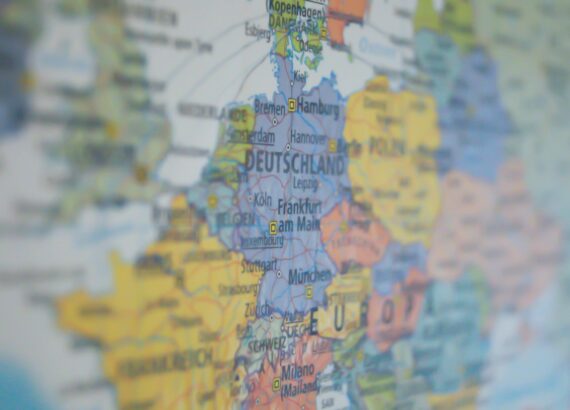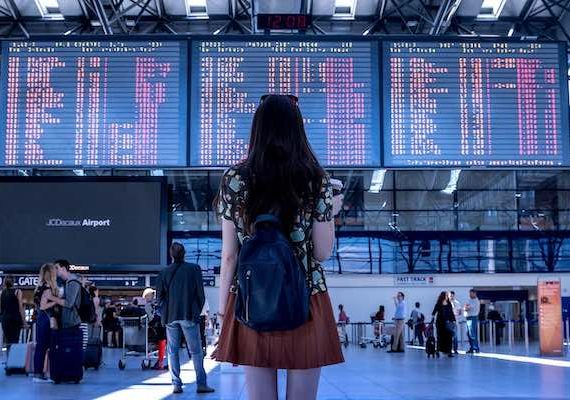What It’s Like To Travel Alone as an Introvert

Traveling alone can be a liberating, eye-opening experience, particularly for introverts. The solitude that comes with solo travel offers a unique opportunity to deeply engage with new environments and cultures at one’s own pace.
For many introverts, solo travel provides a rare sense of freedom to explore without the pressure of social expectations. It allows you to focus on what truly interests you, whether that’s wandering through ancient ruins, savoring local cuisine, or spending a quiet afternoon with a book in a charming café.
When you travel alone, you can give into your natural inclinations and create an itinerary that’s all your own, making it easier to fully immerse yourself in the journey.
The Freedom of Solo Travel
When you travel alone, you have the ultimate freedom to create your own itinerary. There’s no need to compromise on where to go or what to see. You can decide on a whim to explore a new neighborhood, spend an entire day in a museum, or take a spontaneous road trip to a nearby town.
Personalizing the Experience
If you’re an art enthusiast, you can spend hours wandering through museums or galleries, lingering as long as you like in front of your favorite pieces.
If you’re a coffee lover, you can sit at a café, people-watch, and journal your thoughts without feeling pressured to move on.
If you’re an outdoors person, the idea of spending an afternoon wandering around a park or botanical garden might fill you with joy.
Adjusting Plans Based on Your Energy Levels
You also have the flexibility to adjust plans based on how you feel. If you’re having a low-energy day, it’s perfectly fine to retreat to your accommodation early and unwind with a good book. On days when you’re feeling adventurous, you can pack your itinerary with sightseeing, hiking, or exploring local markets.
Planning and Preparation
For introverts, thorough planning can make the difference between a stressful trip and a rewarding one. Researching destinations, making lists of attractions, and knowing how to navigate transport systems can reduce anxiety. Preparation allows introverts to enjoy their travel without the overwhelming feeling of the unknown.
Research Your Destination
Start by doing some in-depth research on your destination. Look up must-see sights, hidden gems, and the local culture to get a sense of what you might enjoy. Create a list of attractions that genuinely interest you, whether it’s historic landmarks, quirky museums, local eateries, or scenic parks. By prioritizing the things you care about most, you can make your trip feel more personal.
Figure Out Logistics in Advance
Figuring out the logistics beforehand can also save you a lot of stress. Research the local public transport system, download maps, and familiarize yourself with how to get around. This way, you’ll feel more confident navigating the city and won’t have to rely heavily on others for directions.
Flying
- Know the best way to reach your accommodation from the airport.
- Research transport options like taxis, shuttles, or public transport.
- Arrange for an airport pickup if needed, or download a rideshare app like Uber.
- Have your accommodation address written down to show drivers.
Train Travel
- Book your tickets in advance and know which platform you need to be on.
- Familiarize yourself with the train station layout to find the right platform quickly.
- Download an app that tracks train schedules and delays.
- Keep your ticket handy, as many trains require scanning before boarding.
Bus or Coach
- Research the bus stops or terminals near your accommodation.
- Buy your tickets early if possible, especially for popular routes.
- Know the approximate arrival time so you can plan the next leg of your journey.
Driving or Renting a Car
- Make sure your accommodation has parking if you’re driving or renting a car.
- Download maps or a GPS app in case of spotty internet reception.
- Familiarize yourself with local traffic rules and driving customs.
- Refuel or charge your vehicle before arriving at remote destinations.
Public Transport
- Look up local bus and metro systems and download maps.
- Buy a travel pass if you’ll use public transport frequently.
- Learn basic local phrases to ask for directions if needed.
Choose the Right Accommodation
Choosing the right accommodation is important, too. As an introvert, you may want to opt for a quiet hotel or an Airbnb where you can retreat and recharge after a day of exploring. Read reviews carefully, and make sure the place has all the amenities you need for a comfortable stay.
Plan for Downtime
Don’t forget to plan for downtime. While it’s tempting to pack your itinerary full of activities, it’s a must to leave some breathing room for spontaneous discoveries or simply relaxing in your accommodation. Having a mix of structured plans and free time allows you to enjoy your trip without feeling overwhelmed.
Travel with Confidence
By being well-prepared, you’ll be able to travel with more confidence and peace of mind, making it easier to savor each moment and truly immerse yourself in the journey.
Finding Quiet Spots in Busy Places
Even in bustling cities, there are havens of tranquility that can be a treat to discover. Quiet galleries, serene parks, and cozy bookshops offer a welcome respite from the chaos. Finding these spots often makes travel so rewarding for introverts.
Public Gardens and Parks
Seek out peaceful public gardens where you can stroll among the flowers or relax on a bench. If you’re in need of nature, find a botanical garden or forested park where you can take in the beauty of your surroundings.
Museums and Galleries
Museums and galleries are also great places to retreat from the hustle and bustle. Many have quiet rooms or exhibits where you can lose yourself in art for hours.
Bookshops and Cafés
Bookshops with comfortable reading nooks or quaint cafés can be excellent places to unwind. Browse through the shelves, grab a good book, and spend an afternoon lost in stories.
Libraries
Libraries, especially historic ones, often have beautiful reading rooms that are perfect for recharging.
Temples, Shrines, and Churches
Consider visiting temples, shrines, or churches. These sacred spaces often exude a sense of calm and provide a quiet corner to reflect.
Finding Balance
No matter the destination, finding quiet spots gives introverts a chance to recharge and reflect. It makes travel more rewarding by offering a balanced mix of exploration and relaxation. When planning your trip, consider including a few serene places where you can pause, breathe, and soak in the beauty of your surroundings.
Connecting with Locals and Fellow Travelers
Contrary to popular belief, traveling alone does not mean being lonely. Introverts often find they are more open to making meaningful connections when traveling solo. Engaging in conversations with locals or fellow travelers can provide a deeper understanding of the place.
Join Small Group Tours and Workshops
One way to connect with locals is by joining small group tours or workshops. Cooking classes, wine tastings, and walking tours often attract like-minded travelers and locals who are eager to share their expertise. Learning to make pasta in Italy or sushi in Japan provides a relaxed setting to chat with both locals and fellow travelers over a shared interest.
Stay at Small Guesthouses or Boutique Hotels
Staying at a small guesthouse or boutique hotel can also open the door to genuine connections. The staff often have insider tips on local hidden gems and are usually more than happy to share their recommendations. Bed and breakfasts tend to encourage casual conversations over breakfast, giving you a chance to mingle with other guests.
Visit Markets or Small Shops
When visiting markets or small shops, don’t hesitate to strike up a conversation with vendors or shopkeepers. Asking them about their products, like a local delicacy or a handmade craft, can lead to fascinating stories about the region’s history and culture.
Male Friends in Hostels and Co-Living Spaces
If you’re staying in a hostel or co-living space, you can easily meet fellow travelers in common areas or by joining hostel-organized activities like city tours or pub crawls. These environments are ideal for making friends who are just as eager to share travel stories and tips.
Attend Local Events
Attending local events like festivals, fairs, or cultural performances can also create opportunities to interact with locals in a relaxed, enjoyable atmosphere. Whether it’s dancing at a music festival in Spain or sharing laughs at a comedy night in New York City, these experiences can lead to unexpected friendships.
Managing Energy and Down Time
It’s pivotal for introverts to manage their energy levels by balancing activities with downtime. Knowing when to take a break and spend a quiet evening in can help maintain the enjoyment of travel without feeling drained.
Plan a Mix of Activities
One effective strategy is to plan a mix of high-energy and low-key activities. For instance, after a day of sightseeing at popular attractions, consider spending the next day exploring quieter neighborhoods or relaxing in a serene park. This balance lets you enjoy the highlights of your destination without becoming overwhelmed.
Choose the Right Accommodation
Choosing the right accommodation plays a key role in managing your energy levels. Opt for a place that feels like a comfortable retreat, whether it’s a quiet Airbnb, a cozy guesthouse, or a boutique hotel. After a day out, it’s important to have a space where you can unwind with a book, stream your favorite series, or simply relax without distractions.
Limit Social Interactions During Meals
Another way to manage your energy is to limit social interactions during meals. Consider grabbing a takeaway from a local market or deli and enjoying it in the privacy of your accommodation or in a peaceful outdoor spot. Dining alone in a peaceful setting can be a wonderfully recharging experience.
Pace Yourself with Activities
Pacing yourself with activities is best. If you love visiting museums, allow yourself ample time to explore at your own speed rather than rushing through multiple galleries in a single day. If you’re visiting a city known for its nightlife, consider reserving one or two evenings for quieter pursuits like a movie or a stroll through illuminated streets.
Take Advantage of Early Mornings
Don’t underestimate the value of early mornings. Getting up early and exploring before the crowds arrive can give you a tranquil, almost private experience of popular sites. Plus, you’ll have the rest of the day to slow down or retreat back to your accommodation if needed.
Give Yourself Permission to Say No
For introverts, it’s also important to give yourself permission to say no. If a hostelmate invites you to a pub crawl but you’re not feeling up for it, politely decline and do something that recharges you instead. It’s your trip, and there’s no need to feel obligated to participate in every social activity.
Listen to Your Body and Mind
Listening to your body and mind is key to enjoying solo travel as an introvert. If you’re feeling drained or overstimulated, don’t hesitate to take a break, whether it’s an afternoon nap, a leisurely stroll in a quiet garden, or an evening binge-watching your favorite show.
Safety Considerations
Safety is a significant concern when traveling alone. Staying aware of your surroundings, keeping important documents safe, and informing someone about your travel plans can help you feel secure.
Staying Aware of Your Surroundings
It’s important to stay aware of your surroundings at all times, especially in crowded areas like train stations, markets, or tourist attractions. Trust your instincts—if a place or situation makes you uncomfortable, it’s okay to leave and find a safer spot. Avoid walking alone late at night, particularly in unfamiliar neighborhoods, and stick to well-lit, busy streets whenever possible.
Keeping Important Documents Safe
Make sure your passport, travel insurance details, and any essential travel documents are safe and accessible. Consider using a money belt or hidden pouch for your passport and extra cash. Additionally, keep digital copies of your important documents on your phone or in the cloud, so you have backups in case anything is lost or stolen.
Letting Someone Know
Before heading out on your solo adventure, inform a trusted friend or family member about your travel plans. Share your itinerary, including the names and addresses of your accommodations, and check in with them regularly via text or email. This way, someone knows your whereabouts and can act quickly if they don’t hear from you.
Choosing Safe Accommodation
When booking accommodation, prioritize safety by reading reviews and choosing well-rated places in safe neighborhoods. If you’re staying in a hostel, ask for a bed in a female-only dorm if that makes you feel more secure. For hotels or guesthouses, check that they have 24-hour reception and lockable doors.
Using Transport Safely
Whether you’re using public transport, taxis, or rideshares, it’s essential to prioritize safety. In taxis or rideshares, check that the vehicle matches the description on your app and that the driver knows your name before getting in. Sit in the back seat, and use a navigation app to monitor the route. On public transport, keep your belongings close and avoid empty compartments or buses late at night.
Blending In
Blending in with the local culture can help you avoid drawing unwanted attention. Dress modestly, particularly in conservative countries, and avoid wearing flashy jewelry or displaying expensive gadgets. Learn a few basic phrases in the local language to make interactions easier and avoid sticking out as a tourist.
Trusting Your Intuition
Above all, trust your intuition. If something feels off, don’t hesitate to change your plans, whether it’s leaving a crowded street, skipping an attraction, or finding a different place to eat. Your safety is the most important consideration.
Emergency Contacts
Finally, familiarize yourself with local emergency numbers, and keep them handy on your phone. Have the contact details for your country’s embassy or consulate as well. If you’re traveling in an area with spotty mobile reception, invest in a personal safety device like a GPS tracker or a satellite phone.
Going Solo
Traveling alone as an introvert is not just about seeing new places; it’s about experiencing them in a way that aligns with your personal preferences. It allows for a level of introspection and personal growth that is hard to achieve when traveling with others. The journey can be as inward as it is outward, providing a profound sense of satisfaction and self-discovery.
Traveling alone offers a special kind of freedom and opportunity for personal growth that can be particularly appealing to introverts. By understanding and embracing their needs, introverts can craft fulfilling travel experiences that resonate with their temperament.
Sarah Lowe
Latest posts by Sarah Lowe (see all)
- The Best Apps to Help Manage Social Energy - May 17, 2024
- How To Avoid Getting Involved in Office Politics - May 16, 2024
- The Greatest Challenges to Introverts While Traveling - May 14, 2024






